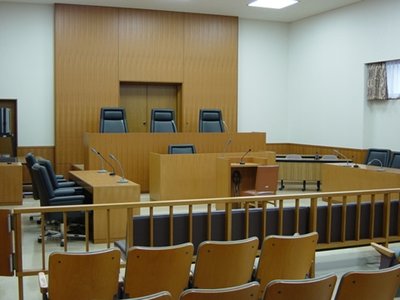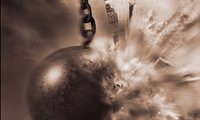損害賠償訴訟

注 記
This section was not included to deter people from seeking compensation in the courts; rather it was included to help people be better prepared and to better consider potential options and implications that may present in cases like these.
For anyone thinking about litigation, I can say from experience, and the many stories I have heard from others, that it can be extremely difficult and there appears to be several reasons for this as outlined below.
However, despite the numerous challenges and difficulties, pursuing litigation can also have its advantages.
ページトップに戻る
(1)考え方の問題
Although you may expect doctors, lawyers and judges to all be professional in their conduct; through my experience, it soon became apparent all parties were influenced by their own attitudes, beliefs and agendas.
These include:
- Doctors' attitudes
- Lawyers' attitudes
- Courts' attitudes
ページトップに戻る
Basically when proceedings are lodged against doctors, like anyone else, they feel threatened. Instinctively, it is fair to say that the “fight or flight” instinct kicks in. However, in the case of being summoned to attend court proceedings, flight is not an option, so generally they will come out fighting.
Of course there is always the option of admitting fault, apologizing and working through a fair settlement, but it takes a lot of courage to do this and generally seems to be unheard of in cases such as these. Doctors have a reputation to upkeep after all.
When it comes to patient welfare versus protecting self interests, it seems many doctors will do whatever it takes to ensure the later…
ページトップに戻る
Whether right or wrong, any defensive layer is going to protect their client and they will do everything they can to deny you any recognition for your suffering and associated losses. This is how they get paid.
Your own lawyer will have their own agenda as well. Although sympathetic to your situation, they will want to get the case over and done with as soon as possible because as the saying goes “time is money”. Subsequently, there may be added pressure for you to get certain things done by certain times.
ページトップに戻る
When I first embarked upon my case, I must have been naive to think I only had two sets of opponents in the doctor and the hospital and their representative groups of lawyers. I must have been naive to think the courts were neutral; when later it became clearer that all was not as it should be (See Justice or Not? for clear concise reasons and examples).
In hindsight, it appears that in cases like these, some judges may begin with the desired conclusion in their own minds and then they set about constructing a pathway to reach that conclusion. It appears priority is given to maintaining the status quo (e.g. maintaining the multibillion dollar drug industries) rather than providing justice to a single individual.
ページトップに戻る
(2)戦略の問題
In my personal experience, and after having had the opportunity to hear stories from many others, a pattern has emerged of the types of tactics doctors tend to employ as they set out to defend themselves.
These tactics can include:
- Creating confusion
- Blaming everything on the patient (victim)
- Twisting or distorting facts to create alternative scenarios
- Discrediting the patient (victim)
- Taking advantage of the patient's (victim's) vulnerability
ページトップに戻る
私の当時の弁護士によると、疑わしいことがある場合は、通常、被告人は証拠不十分として無罪になるそうです。
As confusion creates doubt, this can be a common tactic. Needless to say, the nature of the confusion employed differs from case to case. I have given an example of confusion in my case below:
私の係争はまず調停から始まりましたが、当初から被告人がとった作戦の中心は、“混乱させること”にあったように思えます。私の弁護士もチェックした原告第1陳述書の7項には次のように書かれています。「私の側の主張とX医師・SKクリニック側の主張は,全く噛み合わず,調停委員も呆れていました。」
しかしながら、東京地裁に進み、ジャドスン医師が争点としてDSM-IV-TR 薬物依存(物質依存)診断基準の適用を取り入れた後、被告人は具体的な問題に対処せざるを得なくなりました。そこで彼らは、混乱を引き起こす要素を維持するためには、新たな作戦を見出す必要がありました。
ここで、「自律神経失調症」という、目眩まし、煙幕として完璧なワードが登場してきます。この「自律神経失調症」という用語は、西洋では認められていないため、欧米では決して通用することはないだろうし、私のような薬物依存のケースでこの用語を持ち出すことは全く不適切でナンセンスであるにも拘わらず、この日本では、私の依存や中毒、そしてそれにまつわる損害に対するいかなる責任を回避するという被告側の目的を達成するために有効であったことは明白です。そして、裁判所はこの診断名を喜んで支持することになったのです。
Even if the doctor’s claims don’t make sense medically, scientifically, or even logically, the element of confusion can sometimes be enough to deny the victims any recognition or compensation for their suffering and losses.
ページトップに戻る
One of the most common tactics is simply to blame everything on the patient. As they say “the best form of defense is attack”.
A frequent example of this is when doctors say “Oh, he had all those symptoms before the treatment”.
Unfortunately, related parties, including the courts, often fail to realize that it’s not a question of whether there were preexisting symptoms or not; of course there were, hence the reason why the person in question went to the doctor in the first place.
The point is that dependency causes an amplification of the original symptoms together with the development of totally new ones. This is due to a withdrawal reaction which can occur during the treatment due to tolerance and lost drug effect, during reduction, or after stopping.
When the original condition is amplified in this way, not only does it cause original symptoms to worsen, but it also causes the development of totally new symptoms that were not present at all before the drugs were prescribed.
This phenomenon is not always understood by doctors, lawyers, or the courts and is the cause of many cases where dependency goes unrecognized.
(NB: In clinical situations doctors tend to misdiagnose dependency states for other illnesses, or suggest that it’s a simple case of the original complaint having worsened, and proceed to prescribe more and more drugs compounding the problem.)
ご参考ください
「ベンゾジアゼピン離脱は深刻な疾患である。患者はたいてい恐怖に怯え、しばしば激しい痛みに晒され、偽りなく疲弊し切っている。この疾患の激しさや持続期間は医療従事者や看護師から過小評価されやすく、彼らは禁断症状を“神経症(neurotic)”によるものと簡単に片付けようとする傾向がある。実際は、患者に落ち度はないにも拘わらず、彼らは多大な心身の苦痛に悩まされている。」
ページトップに戻る
Twisting or distorting facts to create alternative scenarios appears to be another strategy used for shifting the focus of proceedings in order to avoid any accountability.
Doctors may try to shift the arguments around so that you may end up arguing things that are totally illogical or irrelevant. It’s almost a case of them saying “I don’t want to fight you over there; you come over here”. No doubt the nature of this will differ from case to case, but just be aware of getting sucked into arguments that are designed to cause nothing but confusion (See point 2.1 above).
For me, my own case was not related to mental health, but I understand the majority of these types of cases are. For people who have had a history of psychological complaints, doctors can easily dig up things from your history to cause more confusion and mix it all in with a load of scientific expressions to make their arguments appear more convincing to the courts.
ページトップに戻る
As mentioned above, they say “the best form of defense is attack”. So discrediting the patient (victim) is a good form of defense. Everything about you can come under attack and discredited, even your family.
Your entire past and everything about you can be dug up, twisted, misinterpreted and dragged through the public domain.
Unfortunately, this can get very ugly and can cause a lot of harm to someone who is already hurting considerably. It may also have the potential to weaken you to the point where your ability to fight on is compromised.
ページトップに戻る
Many people who have suffered from prescription dependency go on to suffer the long term effects of that dependency including: protracted withdrawal syndrome, PTSD, and even permanent damages. They are also extremely vulnerable to stress.
From The Ashton Manual:
[Quote] “After withdrawal the ex-user is left in a vulnerable state with a decreased ability to deal with stressful situations.” [Unquote] (See information)
Needless to say, pursuing compensation through the courts is an extremely stressful event requiring the victim to recall, and in effect, relive the trauma associated with the incident. This can cause flashbacks with relapses of withdrawal.
From The Ashton Manual:
[Quote] “The experience of benzodiazepine withdrawal is deeply etched into the mind and memory of those who have been through it, and is actually physically present in the strength and connections of their neural synapses, as all memories are.” [Unquote]
[Quote] “For those who have experienced a traumatic benzodiazepine withdrawal, an element of post-traumatic-stress disorder (PTSD) may be involved. This is a recurrent condition that can be triggered by small reminders of the past trauma.” [Unquote] (See information)
Doctors are experts on discovering weakness; that’s what they do. In a court situation, doctors can set about exploiting these weaknesses.
To give an example in my case, both sides of the defense were claiming that my condition was simply caused by anxiety/stress alone and that I was prone to such; using the Japanese diagnostic term “Autonomic Nervous Disorder”.
Therefore, during the course of litigation, I found myself having to endure the most stressful experience imaginable with untold challenges whilst making sure not to show any signs of stress. This was INCREDIBLY CHALLENGING – an extreme razor’s edge balancing act between maintaining progress and my health… (See Challenges for more details)
No doubt everyone will have their own weaknesses and challenges that they will need to consider and vulnerability to stress following withdrawal will possibly be one of them.
ページトップに戻る
(3)状況的な問題
There are many implications you will need to consider if you are thinking about pursuing a litigation case for compensation and recognition of your losses and suffering.
These implications can include:
- Financial
- Emotional
- Effects on others
- Challenges
ページトップに戻る
Needless to say, cases such as these require a great deal of funding (See Official Forms in my case). Even though I was able to get legal aid, it only served as a ‘loan’.
The other thing to consider is that unless you can get a ‘fair’ hearing, you could end up having to fund yet another injustice.
ページトップに戻る
No doubt your previous doctor induced drug dependency would have already placed an incredible strain on your relationships with those around you including family, friends, work or otherwise.
The pressure that comes with cases like these will likely place yet another strain on those relationships which will no doubt need to be carefully considered by each individual based on their own circumstances.
ページトップに戻る
Cases like these present an enormous amount of challenges. No doubt every case is different and you will no doubt have to identify and address any challenges or implications your own case presents. See challenges for examples in my case. Another challenge or implication in my case was of course the need to work across 2 different languages and cultures. See translation Errors – this may also be of interest to language enthusiasts.
ページトップに戻る
(4)司法の問題
We all like to think the courts are unbiased, fair and component professionals. After all, they are funded by our hard earned taxes to protect us and provide justice when the need arises and to maintain harmony in our society. However, in my case, I found there were 2 main areas of significant doubt.
These include:
- Attitudes
- Level of Competency
ページトップに戻る
I found there was a significant lack of expertise and competency on the part of the judiciaries in my case. It was quite clear that none of the parties involved really understood the nature of benzodiazepine dependency, withdrawal reactions etc.
The proceedings were a complete shambles as well. More than half of the DSM-IV-TR diagnostic criteria for drug dependency had not been addressed in the High Court verdict, our key witness was twice denied the opportunity to testify (District and High Courts), it wasn’t suggested that we translate all the patient files so the reports can be based on them until after the case had entered the High Court, the original High Court Chief Justice was replaced part way through proceedings by another Chief Justice who knew absolutely nothing about the case or benzodiazepines and so on and so on…
See Justice or Not? for more specific details and examples.
ページトップに戻る
Despite all the difficulties and challenges, perusing a litigation case for compensation can also have its benefits including:
- You can take confidence from having the moral high ground.
- You may actually get compensated.
- The process may help you to understand what happened to you and why – to put the pieces together.
- Putting the pieces together and confronting the source of your suffering may also help you with getting some closure on the ordeal.
- The more cases like this are brought to the attention of the authorities, the more the problem gets recognition.
- The more people who seek cases, the more pressure it puts on the authorities to address the problem and improve the situation.
- Although very difficult to endure, you may come out a stronger person with an increased skill set because of it.
ページトップに戻る
As outlined above, there are many challenges and difficulties for the victims when pursuing a judicial case for compensation.
Due to the complexities (and plain ignorance) many people, including doctors, have a great deal of difficulty understanding how benzodiazepine dependency and withdrawal reactions actually work. Further when getting into arguing differential diagnoses, things can become very messy, confusing and indeed frustrating.
As Prof. Ashton once told me “To get involved with benzos seems to be like opening a can of worms or worse - sometimes serpents!!”
However, that being said, there are also advantages in pursuing a judicial case for compensation as well.
No doubt each and every case will be different, as will each individual’s ability to cope depending on individual circumstances such as: health, finances, family commitments and so on.
Therefore, I think it is wise to sit down and carefully think things through as far as the risks and benefits are concerned. Needless to say, it is also important to find a lawyer who understands the implications of benzodiazepines and how they work. Your lawyer will no doubt give you an assessment of your case based on its merits from his own legal perspective.
In making your decision as to whether or not you should proceed, I also recommend discussing things with friends and family because, not only will it give you some additional perspectives, you’re decision may also affect their lives as well. However, ultimately the decision will be yours. Best of luck!
ページトップに戻る

当サイトは、医原性ベンゾジアゼピン薬物依存症(中毒)の注意喚起、また、医療訴訟の問題について知っていただくために、個人的に作成したものです。
当サイトには報復的な目的は一切ありません。また、プライバシー保護のため、当サイトに掲載される公的資料からは、被告人またはその他関係者の名前は削除されています。
当サイトには私以外に関係する個人や団体は無く、また、特定の組織や社会運動を代表するものでも一切ありません。
当サイトは医療的あるいは法的な助言を目的としたものではありません(免責条項参照)。
最も驚いたことは、高裁が、中毒を引き起こすとみなされるベンゾジアゼピンの用量を決める際、製薬会社が作成した添付文書に信用を置いたことであった。

「負けた気がしません。私は勝ち、裁判所が負けたと感じています。彼らは医師たちを守る一方、社会を守り損なったように思えます。私がやりたいことは、私の経験を紹介したり、裁判を通して集めた資料を使ったりして、依存患者や依存に陥る可能性のある人たちのために情報を提供することです」
「もし何かの薬を飲み続け、それが長い長い災難をもたらし、あなたからアイデンティティをまさに奪い去ろうとしているのなら、その薬はベンゾジアゼピンに違いない。」

ジョン・マースデン医師
ロンドン大学精神医学研究所
2007年11月1日
「我々の社会において、ベンゾは他の何よりも、苦痛を増し、より不幸にし、より多くの損害をもたらす。」

フィリップ・ウーラス下院議員
英国下院副議長
オールダムクロニクルOldham Chronicle (2004年2月12日)
「ベンゾジアゼピン系薬剤はおそらく、これまでで最も中毒性の高い薬物であろう。これらの薬を大量に処方してきた途方もなく大勢の熱狂的な医師達が、世界最大の薬物中毒問題を引き起こしてきたのだ。」

薬という神話 (1992)
「薬があれば、製薬会社はそれを使える病気を見つける。」

ジェレミー・ローランス (ジャーナリスト)
インディペンデント紙 (2002年4月17日)
「製薬会社に対して、彼らの製造する薬について公正な評価を期待することは、ビール会社にアルコール依存に関する教えを期待するのと同じようなものである。」

マーシャ・エンジェル医師
医学専門誌"New England Journal of Medicine"元編集長
「ベンゾジアゼピンから離脱させることは、ヘロインから離脱させるよりも困難である。」

マルコム・レイダー教授
ロンドン大学精神医学研究所
BBC Radio 4, Face The Facts
1999年3月16日
「長期服用者のうち15%の人たちに、離脱症状が数ヶ月あるいは数年持続することがある。中には、慢性使用の結果、長期に及ぶ障害が引き起こされる場合もあり、これは永続的な障害である可能性がある。」

ヘザー・アシュトン教授
医学博士、名誉教授
Good Housekeeping (2003年)

このセクションでは、私が闘った日本の裁判についてお話します。特にそこで現れた、明らかに不当な処置と思われる事例のかずかずを紹介します。これらの事例をわかりやすくお伝えするために、「東京高等裁判所の判決」と「中毒治療科の報告書」への参照箇所(リンク)がいくつか出てくるので是非ご参考ください。また、「中毒治療科報告書」は、一貫して、法的証拠およびDSM-IV-TRの依存症診断基準に基づいて書かれていることにもご留意ください。

- 当方の重要証人である医長(診断医)は、裁判での証人尋問を2回拒まれています。1回目は東京地方裁判所で、2回目は東京高等裁判所においてです。
- 第1審決裁後の反証提出期限を過ぎてから、地方裁判所の裁判官は、被告側の有利になる問題を提出し、当方には反証提出の機会すら与えられなかった。
- 東京高等裁判所の裁判官は、中毒を引き起こすとみなされるベンゾジアゼピンの用量を決める際には、製薬会社が作成した添付文書に信用を置いて、提出された十二分なまでの証拠(疑う余地のない文献や専門家の意見など)を、あろうことか、無視した。
- 裁判では、被告医師が下した診断と、出された処方は整合性が取れないのだが、その矛盾は追及されることはなかった。
- 判決理由の記載の中身をみると、高等裁判所は、本件に適応されたDSM-IV-TR診断基準のうち、半分以上について検討していないことは明らかである。
- 訴訟中に裁判長の交代があった結果、本件について詳しい裁判長の代わりに、本訴訟の経過やベンゾジアゼピンについての基礎知識を全く持っていない新しい裁判長が途中で本訴訟を引き継ぐことになってしまった。











